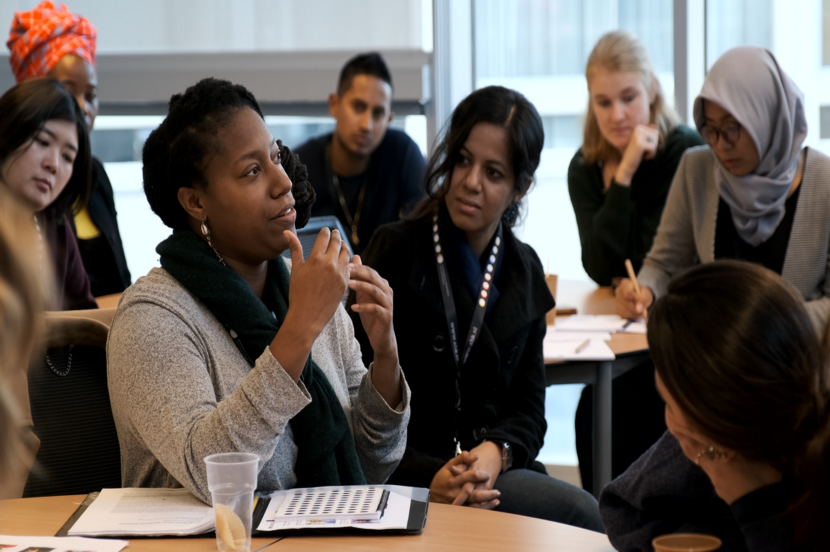Discussing contested histories and heritage
Weblog
“How can a museum connect the deep oral histories of the communities they serve with the object centred museum definition? And how can digitization of the oral culture of communities contribute to accessibility and visibility when many are excluded from the digital world because of poverty? Is our western concept of collections and collection care helpful in creating equal access for all to the resources of heritage?” These were some of the dilemmas and challenges discussed during the 2022 edition of the training Sharing Stories on Contested Histories.
Four community museums from around the world provided the new perspective of the 2022 workshop Sharing Stories on Contested Histories. Twenty four young heritage professionals from the partner countries of the International Heritage Cooperation Programme discussed major themes that dominate the debate in the museum world, using the viewpoint of these small museums. Coloniality and decolonization, poverty and social justice, trauma and migration were discussed and explored as ‘history from below’, in contrast to the previous workshops (2018 – 2021) in which these dilemmas were studied through the approach of large museums like Rijksmuseum or the Tropenmuseum in Amsterdam.
[Text continues underneath the photo]

Intense global collaboration
The participants worked in four teams to provide the four case study museums with their reflections on the dilemmas and challenges the museums provided. All sessions were held online, covering the time zones from Japan to Surinam, requiring some to stay up late and others to rise before dawn. Bridging time and space, the participants created their own community of practice and engaged in an intense collaboration, inspired by the content that was provided by key note lectures and the four case study museums.
Four community museums
From Brazil the Museo Muquifu participated, located in the favela of Belo Horizonte, and initiated by the local priest and museologist to serve the locals. From South Africa it was the District Six Museum, that originated from the “coloured” community that was evicted by the apartheid regime from their neighbourhood in Cape Town (“coloured” being one of the racial categories imposed by apartheid). Museum Multatuli, which opened in 2017 in Indonesia, contributed in close collaboration with the community Rangkasbitung. This community inspired the 19th century Dutch novelist Multatuli to write his famous anti-colonial novel Max Havelaar. And from the Netherlands Museum Sophiahof offered their case. This museum functions as a platform for the various communities that are directly related to the migration from Indonesia after the independence in 1945. The four case studies were portrayed in video documentaries that were produced by alumni from the respective countries.
To discuss contested history and heritage is the main purpose of this training. The participants thoroughly explored how these four museums offer an effective method to their communities to organize themselves around their memories and oral history that deal with the traumatic legacy of coloniality. This could be emotional for the participants at some points, coming close to personal situations and feelings, and it also fuelled the engagement that all teams felt with the museum they focused on.
The discussion with the people working with the museums, the coaches, and fellow participants made me realize that a healthy discussion about contested heritage is possible and it leads to constructive and collaborative work - participant.
Shift in focus
It turned out that the shift from the larger Dutch museums to the smaller community museums from around the world was inspiring and refreshing, not in the least because the four museums all started in the last three decades. The future editions of the training Sharing Stories on Contested Histories will continue this line, seeking a more equal approach in the international heritage cooperation. The online structure of the workshop proved beneficial, creating a worldwide atmosphere.
Sharing Stories on Contested Histories
The training Sharing Stories on Contested Histories is organized by the Cultural Heritage Agency of the Netherlands in close collaboration with the Reinwardt Academy.
The next edition will take place in 2023. The training will partly be held online combined with a week of working together in one of the partner countries. The call for the new edition will be available in February 2023.
One of the participants - Dr Sophie Vohra - has published a reflection on this edition of the training. Read her article on the website of the University of York.